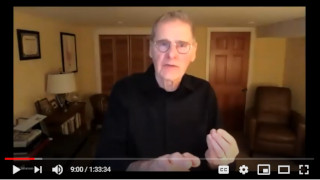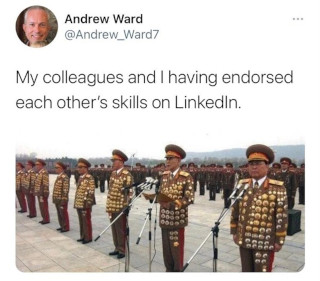[By No Use For A Name !, via Flickr. (CC BY 2.0)]
Good morning,
Singapore’s success—and its transformation from a third world to a first world country—is often attributed to the group of competent bureaucrats and politicians who ran the nation. In Singapore: A Modern History, Michael Barr, Associate Professor in International Relations, Flinders University, Australia, details how Lee Kuan Yew built this cadre, and also points out one of the shortcomings of the system.
Barr writes, “Lee Kuan Yew launched independent Singapore with a deep-seated conviction in the universal applicability of ‘talent’ to any situation, and he transformed this conviction into the basis and legitimating rationale of the Singapore political system. He was convinced that the secret of good governance lay in the identification of those people with a genetic and almost tangible quality called ‘talent’. Finding ‘good men’ and giving them power was the key to good governance. The mechanism by which a society finds and funnels such people to the top is just a question of means, not principle. In its late-colonial phase Singapore had already been running a modest system of elite schools and Public Service Commission (PSC) university scholarships for outstanding students. The top echelons of the civil service—the Administrative Service—had long since been recruited from these pathways, and after it came to power in 1959 the PAP government continued and intensified this practice. Prime Minister Goh Chok Tong was an early product of this system. Goh was recruited straight into the Administrative Service directly from doing his MA in Economics at Williams College, Massachusetts in 1967. This was also the year in which Lee Kuan Yew began his practice of taking a close professional interest in PSC scholarship award holders. He followed their careers and received confidential reports on their work, regarding these cohorts of bonded government scholarship winners as the government’s routine source of professional executives and the ruling party’s longer-term source of political leaders.”
However, no policy decision comes without unintended consequences. Barr writes, “these elites—especially those who came through the military—were drawn almost exclusively from the same upper-middle-class, English-speaking Chinese social background; they went to the same schools; many of the military scholars had served in the same officer corps of the army; they competed for and won the same scholarships. And when they returned from study they joined the same clubs, attended the same postgraduate finishing schools, and engaged in the same structured socialisation and bonding exercises.”
Building talent is a core challenge across government, business and social sectors. Share your thoughts with us.
In this issue
- Bob Johansen on Full Spectrum Thinking
- Covid-19: Why experts got it wrong
- The unsubtle art of social endorsements
Have a great day!
Bob Johansen on Full Spectrum Thinking
Bob Johansen is a futurist many organizations and governments turn to for advice. A distinguished fellow at the Institute for the Future in Silicon Valley and author of multiple books on the theme, he knows what he is talking about. Earlier this year, after his most recent book Full Spectrum Thinking was published, the iSPIRT Foundation in association with IIM Bangalore invited Johansen to speak on the theme and why it matters, at the Global Leadership Summit. Venkatesh Hariharan of iSPIRT set the context and handed the baton to Prof Vasanthi Srinivasan of IIM-B to moderate the conversation.

“The future is already here. It's just unevenly distributed.”
In his book, Johansen describes full spectrum thinking as the ability to seek “patterns and clarity across gradients of possibility—outside, across, beyond, or maybe even without any boxes or categories—while resisting false certainty. In today’s political climate, categories dumb down the way we talk about each other. Categorical thinking moves us away from understanding the bigger picture. It lacks context. Categories lead us toward certainty, but away from clarity.” Johansen thinks this is important because “The future will be a scramble: an asymmetrical patchwork of urgency, panic, imbalance, and hope.”
In this conversation, he spoke about what a futurist does (thinks about alternative futures—not predictions—that provoke insights and action); why clarity of direction with flexible execution trumps certainty; new learning tools; why leaders must engage with and learn from kids; and why they need to build shape-shifting organisations. In short, the approaches, frameworks, and mindset to thrive in a VUCA world.
After Johansen finished his presentation, Prof Srinivasan opened the floor by first asking Charles Assisi of Founding Fuel to reflect upon Johansen’s talk. Johansen then built upon the themes that emerged and took sharp questions from the audience.
Dig deeper
Covid-19: Why experts got it wrong
Foreign Policy is running a series on what experts missed during the early days of the pandemic. One essay in the series looks at the way the predictions by social and behavioural scientists on the social impact of the pandemic turned out—not so good. “The majority of forecasts were off by at least 20 percent, and fewer than half of our participants correctly predicted the direction of changes.”

[Free-Photos via Pixabay]
Why were predictions and expectations for the pandemic’s societal impact so far off? The authors, Michael Varnum, Cendri Hutcherson, and Igor Grossmann, write: “Simply put, prediction is hard—even, or perhaps especially, for experts. In several forecasting tournaments dating back to the 1980s and continuing into the present, Philip Tetlock has shown that experts generally make poor forecasters of geopolitical events, often performing little better than the proverbial dart-throwing chimpanzee. Why? Tetlock identified a number of factors, key among them overconfidence and base rate neglect—a tendency to view each event as unique at the expense of considering how similar events may have unfolded in the past. In a similar vein, Daniel Kahneman and his colleagues have identified several cognitive biases that lead experts to make poor forecasts, including overemphasizing the role of salient current events, being too quick to make judgments, and being too slow to change their minds in the face of new evidence. Laypeople don’t tend to make for better forecasters either, falling prey to a number of heuristics and biases in their reasoning, as Kahneman and his longtime collaborator Amos Tversky showed in a research project for which they were awarded a Nobel Prize. People (experts included) also tend to be especially poor at predicting their own future feelings, misjudging the intensity and duration of their emotional reactions to events like winning the lottery or experiencing a painful breakup.”
However, that doesn’t mean one has to keep away from forecasting. The authors share a piece of advice from Philip Tetlock: “try, fail, analyze, adjust, and try again.”
Dig deeper
The unsubtle art of social endorsements

[Via Twitter]
Still curious?
In the relatively short time since it became independent in 1965, Singapore has made giant strides. The country illustrates well the power of local systems solutions, purpose-driven networks, and inducing all parts of the government and all stakeholders to work together, writes Arun Maira. Read: Economies of scope: Singapore’s alternative approach to progress
NS Ramnath shares some takeaways from Philip Tetlock’s book, ‘Superforecasting’. Read: Six people who can help you become a superforecaster
Tell us what you think and find noteworthy.
And if you missed previous editions of this newsletter, they’re all archived here.
Bookmark Founding Fuel’s special section on Thriving in Volatile Times. All our stories on how individuals and businesses are responding to the pandemic until now are posted there.
Warm regards,
Team Founding Fuel
(Note: Founding Fuel may earn commissions for purchases made through the Amazon affiliate links in this article.)

